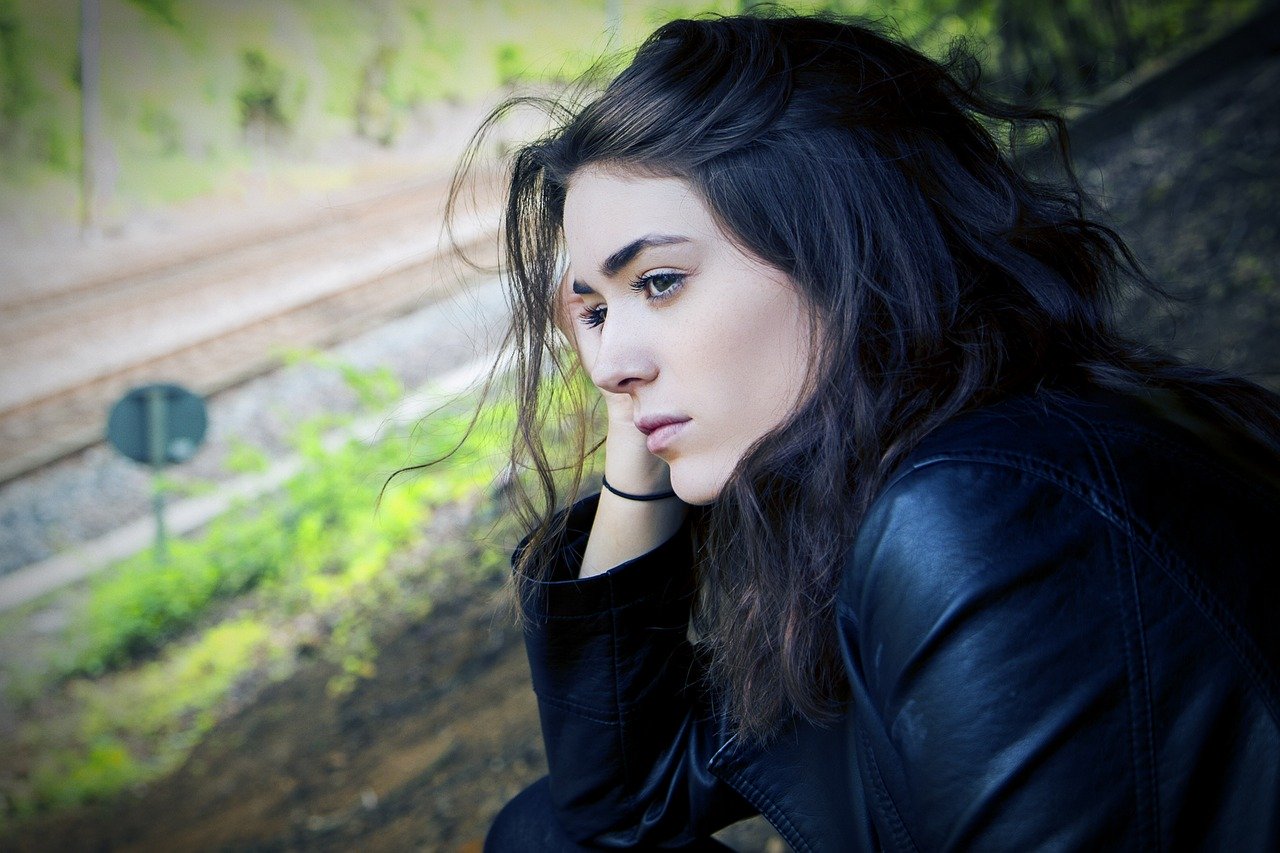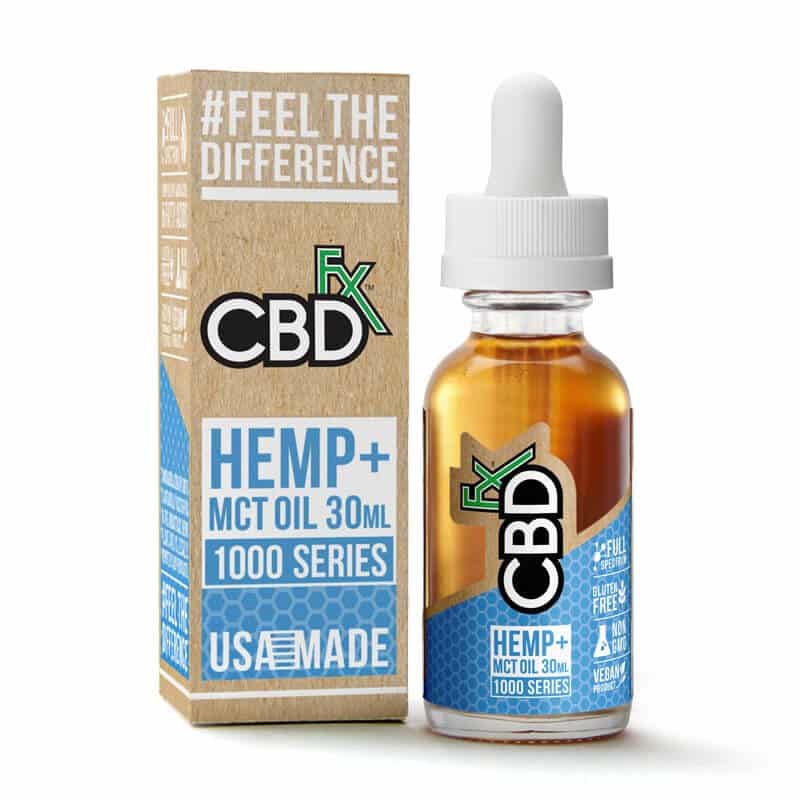CBD for Anxiety: How It Can Help You Relieve Stress

Studies have shown that using CBD for anxiety relief can be efficient. The calming effect of CBD on the nervous system reduces stress and alleviates associated mental dysfunctions. Read on to learn more about this healing cannabinoid.
If there’s anything to be said about the unfolding of these modern times, it’s that they are tense and dubious. We live in constant uncertainty, dreading the prospect of massive changes dangling over our heads on a daily basis. Politics have divided us, the economy is destroying the planet, many are unemployed, even more overworked and underpaid. Global crises such as the latest COVID-19 outbreak demonstrate with ease how frail our collective resilience and our healthcare infrastructure really are.
If you’re feeling anxious at this point, no one can blame you. Anxiety seems to be the new normal in the Western world, with no decrease in prevalence despite an increase in treatment options and efforts. As a disorder externalized in many different ways and segments of life, and a potential precursor to even more debilitating mental issues, it’s also often overdiagnosed, with a ‘better-safe-than-sorry’ kind of mindset. This makes it difficult to ascertain the actual scope of the problem.
What we do know is that medicalization statistics are going through the roof. As the growing number of psychiatric patients quickly started becoming a burden to the feeble mental healthcare system and psychotherapy as an underdeveloped discipline in the late 80s, pharmaceuticals became something of an easy fix for ‘lower-caliber’ mental disorders such as anxiety.
Resolving the underlying causes is, of course, always the better choice compared to numbing psychological symptoms with chemicals. However, psychotherapy and lifestyle changes require much more time, money, and effort, so it’s understandable how pharmaceuticals became the default option.
Conventional Treatments of Anxiety
Anxiety is assumed to have similar origins as depression, specifically, in the imbalance of the serotonergic system. Serotonin is the neurotransmitter thought to be responsible for regulating mood, restfulness, and states like anxiety and happiness.
Selective serotonin reuptake inhibitors (SSRIs), our current most effective depression and anxiety medications, are not serving us well enough. These drugs, originally meant as short-term therapies but nowadays often used for years on end, were designed to treat chemical imbalances in the brain. However, it has recently been suggested that “instead of relieving a hypothetical biochemical abnormality, [these] drugs themselves cause abnormal states.”
It’s also a fact widely swept under the rug that these pharmaceuticals are not nearly as effective as they were meant to be. Research has shown that SSRIs work only “modestly” better than placebos, have a wide variety of prevalent serious side-effects, are very difficult to discontinue, and may ultimately lead to permanent brain deterioration.
The case is clear – we need less harmful and more effective alternatives.
Using CBD for Anxiety
This is where CBD comes into play. This “secondary,” non-psychotropic cannabinoid has been surging in popularity over the last decade. Its therapeutic potential has been thoroughly explored and documented; it’s been shown to effectively help in managing symptoms of a wide array of disorders, including chronic pain and inflammation, anxiety, insomnia, PTSD, tobacco addiction, opioid dependency, cardiovascular disease risk and recovery, epilepsy, psychosis, and even cancer.
CBD is proving very effective in treating anxiety. Unlike THC, the main cannabinoid marijuana is known for, CBD doesn’t cause a “high” nor paranoia, even at high doses. It actually appears to balance out the effect of cannabis by diminishing THC-induced anxiety in what’s known as the entourage effect of cannabis. Additionally, unlike THC, CBD is not as strictly regulated due to its low psychoactivity; extracting it from hemp (cannabis plants with less than 0.3% of THC content) is legal for licensed growers who comply with all necessary federal and state regulations.
Here are a few studies showing marked anxiolytic effects of CBD:
- The compound was found to reduce anxiety and discomfort during public speaking in people with social anxiety disorder, as well as to reduce the general anxiety levels in those suffering from this disorder.
- In a review of 49 studies, results overwhelmingly supported CBD as a treatment for generalized anxiety disorder, panic disorder, social anxiety disorder, obsessive-compulsive disorder, and post-traumatic stress disorder (PTSD).
- A recent study showed CBD to be effective against insomnia, as well as generalized anxiety in 70-80% of participants.
- A study on the effects of marijuana on mental health outlines the array of benefits of combining THC and CBD; regulating some of the other psychological issues that THC can also be helpful with can contribute to lowering the levels of anxiety itself.
- This recent study found anxiolytic (anti-anxiety), antipsychotic, and neuroprotective properties of CBD, citing it as a “useful and promising molecule that may help patients with a number of clinical conditions.”
While further studies are needed, especially large-scale clinical trials, the results so far are encouraging.
How Does CBD Work?
CBD stimulates the parasympathetic nervous system (the part of the nervous system responsible for promoting rest, healing, rejuvenating, and regeneration) and inhibits the effects of the sympathetic nervous system (which is responsible for eliciting stressful responses, both physical, psychological and emotional, as well as triggering the fight-or-flight mechanism). This general calming effect of CBD efficiently reduces levels of stress.

Unlike its cannabinoid relative THC, CBD isn’t an agonist for the CB1 and CB2 receptors. It’s thought that CBD achieves its anxiolytic effects through its action on the serotonergic system, specifically by activating the 5-HT1A receptor. Levels of serotonin, the neurotransmitter responsible for governing mood, sleep, digestion, and behavior, and the bioavailability of its receptors, have been shown to directly regulate anxiety levels.
A similar mechanism of action is assumed to underlie the anxiolytic effects of other psychedelics, such as ayahuasca and psilocybin mushrooms.
Experiments on rodents indeed confirm that the administration of CBD to stressed animals attenuates their rapid heart rate and high blood pressure. The researchers confirmed that this process is at least partly attributable to the action of the 5-HT1A receptor because they also used a substance that is an antagonist of this receptor, which blocked the effect of CBD on it, making the stress symptoms persist.
Unfortunately, the FDA has so far only approved CBD as a treatment for epilepsy. Various CBD products available in cannabis dispensaries are regulated only on the state level, which means that their safety, purity, concentration, and quality depend on the individual producers and distributors.
As such, it is a common occurrence that CBD products are mislabeled for the amount of active compound they contain. They also may contain some THC, whether this is stated in the product description or not. For some people, this may not be a problem; however, for others, whose workplace conducts drug tests which normally test for THC, this may pose serious risks. Luckily, with the rapid advancements happening on the legalization front, we hope to see even THC legalized on a federal level in the forthcoming decade.
How to Use CBD for Anxiety
The lack of federal regulation means that there are no clear guidelines in terms of dosages and means of consumption, so those suffering are left to their own devices to research and experiment. Unfortunately, we also can’t give you a clear-cut answer on CBD dosages for anxiety as there is no “one size fits all” as far as the use of CBD goes. Dosages will depend on the purity of the product, way of intake, personal sensitivity, body weight, and other factors.
CBD products are available in many forms, including oils, capsules, drops, teas, gummies, and others. Using CBD oil for anxiety is best done by means of vaporizing it, as the effects are almost instantaneous due to the compound entering the bloodstream rapidly through the lungs. Vaporizing has also been shown to be relatively safe, although long-term research of vaping is in its infancy, so we can’t claim with certainty that it doesn’t cause damage. Still, in theory, it should be safer than smoking CBD joints, which is also a popular, albeit more conspicuous option.

Our recommended brand of CBD oil for anxiety is CBDfx. Click here to shop
Taking edibles such as CBD gummies for anxiety means that the compound needs to go through the digestive tract and get metabolized in the liver. This means that it takes longer for its effects to start (about 30min to 2h), which may not be ideal for specific anxieties such as social anxiety, which often has a rapid onset and needs to be dealt with immediately.
A good in-between solution is applying CBD tinctures sublingually. Sublingual administration allows the CBD to be relatively rapidly absorbed (in about 5 to 20min).
As far as dosages go, studies haven’t shown adverse effects of consuming high amounts of CBD. A safe and effective dose is considered to be around 300mg; taking significantly more has been found to not increase effectiveness. Again, though, the CBD dosage for anxiety will vary from person to person, so experimentation is needed to find the perfect amount. CBD is also not considered to be an addictive substance. However, longitudinal effects studies don’t exist as of yet, so it’s not possible to say how safe long-term use is.
Hemp Oil vs CBD Oil for Anxiety
Hemp oil, or hemp seed oil is produced from the same plant as CBD oil – Cannabis sativa. The strain of Cannabis sativa needs to have less than 0.3% of THC content to be legally cultivated and called hemp. Unlike CBD oil, which comes from the flowers and leaves of the plant, hemp oil is squeezed out of the seeds, and it contains trace amounts of CBD and negligible amounts of THC.
Hemp oil is highly nutritional and very beneficial for the cardiovascular system, the brain, and the skin, among other organs. It’s been used since ancient times and is an overall phenomenal dietary supplement with zero side effects. However, due to its almost negligible levels of CBD, it does not have as potent of an effect on stress and anxiety as CBD oil does.
This is why our recommendation is to opt for the use of CBD oil for anxiety, on account of its widely reported anxiolytic properties.
Should You Try Using CBD for Anxiety?
When it comes to neurotransmitter levels and the biological balance of the brain, CBD seems to help return its chemistry to a more stable state and steady the flow of the system that regulates stress – leading to a more improved and stable mood. According to anecdotal reports, there is also a compound effect which builds upon the initial relief that using CBD oil provides that can support one to find more reasons to feel better and adopt behaviors which will make them feel better in the future.
All this is done with a natural and abundantly legal compound that has no confirmed health hazards. A caveat here is that if ingested orally, sublingually, or vaporized, CBD can induce a few relatively mild and infrequent side effects such as dry mouth, diarrhea, reduced appetite, drowsiness, and fatigue. Compared to the often crippling effects of anxiety, however, these few rarely occurring symptoms need not be a big concern.
While it’s clear that the research into the effects of CBD and CBD oil for anxiety needs more development, the results so far have been promising and indicative of CBD oil receiving more scientific and public attention in the coming years. So, while we are not in any way advocating CBD oil as a “cure” for anxiety, the positive scientific and anecdotal reports coupled with slim to none health risks do make it worth a try, especially for those not having much luck with conventional treatments.
CBD oil also has numerous other health benefits, which only add to its value. And, with the stigma around CBD and cannabis in general dissolving faster than ever, using CBD products is mostly not even a taboo any longer.
When fighting anxiety, you need all the help you can get. Hopefully, CBD oil can increase your chances of getting better. Still, before using CBD, make sure you consult with your physician or counselor, at the very least to learn about any potential negative interactions in case you are using pharmaceuticals.
Have you tried using CBD oil for anxiety already? What are your experiences?
If you haven’t, are you considering it? What are your concerns?
Please share them with us in the comments below.
